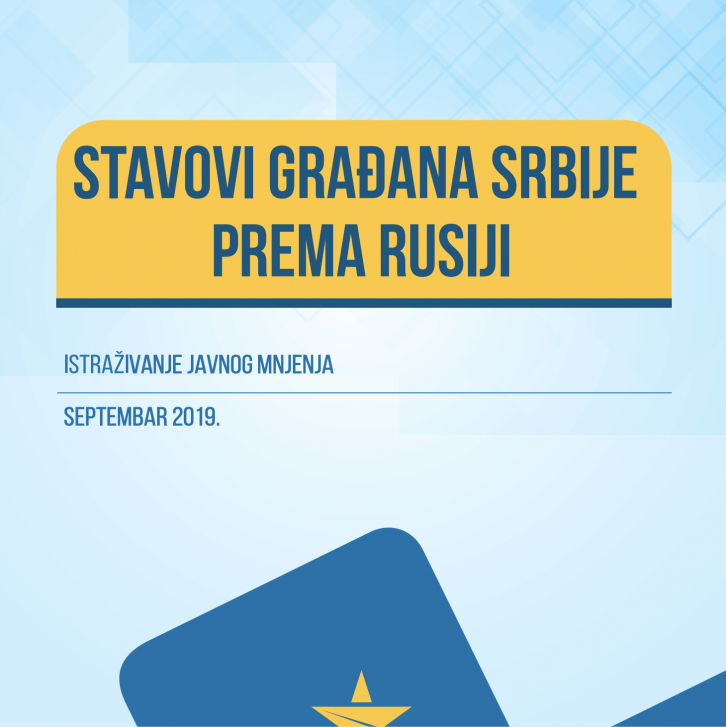Serbian citizens by vast majority consider relations between Serbia and Russia excellent or very good, and as many as a quarter of citizens consider Russia to be Serbia’s largest donor, although it is not even among the top ten biggest donors.
For the fourth year in a row, the Institute for European Affairs, in collaboration with the Ninamedia Research House, conducted a public opinion survey on citizens’ attitudes towards Russia between March 8 and 17, 2019. The study was conducted on a representative sample of 1206 subjects. The topics of the research were: the relationship between Russia and Serbia, the way to inform about this relationship; whether they traveled to Russia; the largest donors of Serbia.
39.9% of Serbian citizens rate the relationship between Serbia and Russia as 5 – very good, 38.3% as 4, 18.2% as 3, while 2.9% as 2. and 1 as very bad 0.7% of respondents. The average grade of relations between Serbia and Russia is 4.14, and the higher grade is given by women, respondents over 60 years of age, respondents with preliminary education, as well as respondents from Central Serbia.
The largest number of respondents are getting informed about relations between Serbia and Russia via television (40.6%), 21.4% via Internet portals, 17% via print media, 9.5% cited social networks, 6.1% via family, friends and colleagues, while other responses occur in less than 4% of cases.
90% of the respondents have never travelled to Russia, while 10% have. Among those who have, majoritz are men, respondents with the highest level of education and residents of the Belgrade region.
Most citizens of Serbia (87%) think that Russia is a friend of Serbia, 2% have the opposite opinion, while 11% do not know the answer to this question. The number of respondents who consider Russia to be a friend of Serbia is declining as education level increases
A quarter of Serbian citizens consider Russia to be the largest donor and the European Union is cited in almost the same percentage, 18.9% consider China the largest donor, 6% Germany, 16.9% do not know the answer, while other answers occur in less than 2% cases.



